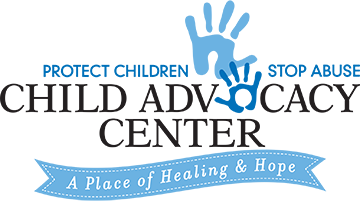
Most articles will address the do’s and don’ts when it comes to children disclosing abuse. However, this blog will address disclosure from a different angle. Articles sometimes address disclosure as occurring in a nearly perfect time and place, and in a calm, quiet environment. The children in these articles disclose to a social worker or a mandated reporter who is trained and has all the answers. Disclosures rarely happen that way.
Children may disclose anywhere and at any time. They could be outside playing on a playground or talking to a teacher about their homework after class. Children often disclose to someone whom they feel comfortable with. A child could disclose abuse to a mandated reporter such as a school social worker or a police officer. However, it could also occur with a family member, a friend’s parent, or a coach. In short, there is no “perfect” time or place in which a child discloses abuse. On top of that, you will likely never know why a child chose you to make their disclosure. Children often disclose abuse when they feel comfortable with the person they are with, and when they feel safe.
Disclosures can be triggered by any of the 5 senses. It doesn’t have to be a significant event. It could simply be a smell, a sound, or a touch that triggers a child to talk. Whatever the circumstance may be for the disclosure, listening is key. The child will tell you what he or she wants you to know. Be patient. Allow the child to talk, wait out the long pauses, remember she/he is sharing something about themselves that is personal (Childhelp, 2022). If one must ask questions, be very specific and only for the purpose of clarification and to obtain pertinent information to report the abuse. Asking too many questions may cause a child to shut down and stop talking. Asking a child what he/she needs may also be a difficult question. He or she may not know what they need especially if it is an immediate family member who is the abuser. People must remember that the child may love or care about the abuser.
Keep in mind that the child disclosing is keenly aware of the tone of voice, facial expressions, and mannerisms of the person listening. How much a child may tell can rest on how the individual he/she told reacts. What the recipient of the information says during and after the child discloses abuse is crucial to the next steps. The individual who has just heard the disclosure needs to reassure the child that he/she is believed and will be kept safe. In order to keep the child safe, a referral must often be made to children’s services. Explaining to a child that has just disclosed that children’s services must be notified can be difficult. It must be explained that a report is necessary to keep the abuse from happening again.
Who exactly is a mandated reporter? Mandated reporters and individuals who have been told about abuse need to be familiar with the reporting agencies in the county or even state in which they reside. North Carolina (NC) is a state that has a mandatory reporting law in which anyone who suspects child abuse must report it. The NC General Statute 7B-301 statute requires a duty to report abuse, neglect, dependency, or death due to maltreatment to the Department of Social Services in the county where the child resides or is found (§ 7B-301). Therefore, it is important to let the child know from the beginning that you care about them and their safety and that you support them. Be honest from the beginning that you cannot keep what they tell you just between the two of you and that you will need to report the abuse. As a Criminal Justice Professor, I teach future professionals who may very well hear reports of abuse. It is critical for all those working in the field to know their legal obligations.
It is important to remember that child disclosures can happen at any time, and at any place. Therefore, it is imperative that the person whom a child chooses to disclose to actively listens, is patient, lets the child talk at his/her own pace, and lets there be pauses. Only ask questions if necessary, be mindful of tone of voice, facial expressions, and mannerisms. Always be honest about having to report the abuse and explain that the report is necessary to help keep the child safe and to keep the abuse from happening again. Finally, it is vital that professionals be informed about disclosure laws and reporting agencies in the county or state they reside in. Disclosures rarely happen at the ideal time and place, but with a little knowledge, your response to a child in need can make one of the most difficult moments in a child’s life just a little bit easier.
Bio:
Sarah A. See is an Assistant Professor at Methodist University in the Department of Criminal Justice. She received her Bachelor’s Degree in Psychology and a Master’s Degree in Criminology from Indiana University of Pennsylvania. Her previous research has been focused on the mentally ill in our jail and prison systems, firearms, carry conceal, and police use of force.
References:
Handling Child Abuse Exposures. Childhelp. Prevention and Treatment of Child Abuse.
Retrieved November 7, 2022.
Handling-Disclosures-v2.pdf (childhelp.org)
§ 7B-301. Duty to report abuse, neglect, dependency, or death due to maltreatment.
Retrieved November 7, 2022.
https://www.ncleg.gov/EnactedLegislation/Statutes/HTML/BySection/Chapter_7B/GS_7B-301.html#:~:text=(a)%20Any%20person%20or%20institution,the%20juvenile%20resides%20or%20is
